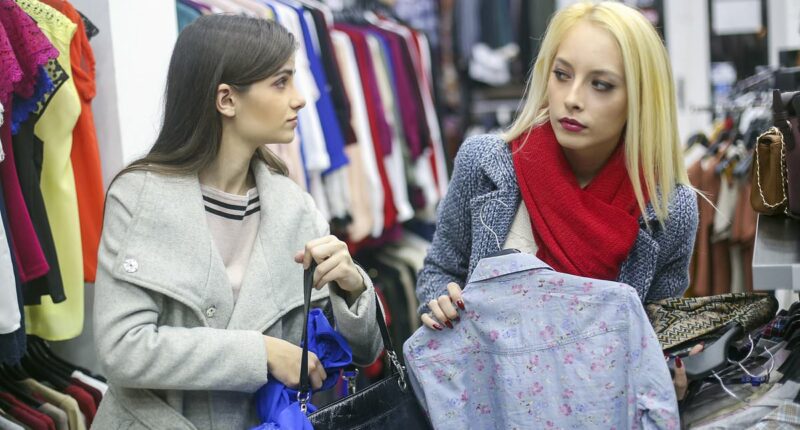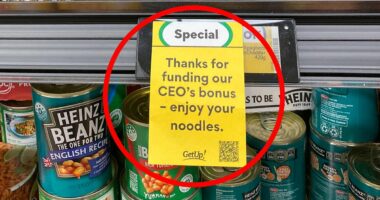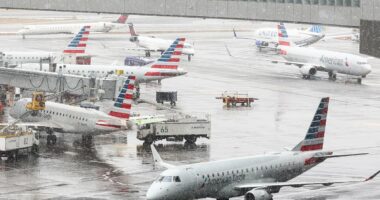Share this @internewscast.com
To combat shoplifters using the five-finger discount, Long Beach is taking aim at self-checkout. Retailers aren’t happy about it.
In August, the California city rolled out a first-of-its-kind US law limiting how many self-checkout registers major stores can install.
The regulation sheds light on the disparity between affluent and impoverished residents in a city that witnesses numerous multi-million-dollar real estate transactions annually, yet it’s also where 22.8 percent of the population lives under the federal poverty level.
It also poses an important question: Are self-checkout registers to blame for America’s years-long retail theft problem?
The city’s ‘Safe Stores are Staffed Stores’ ordinance mandates that major grocery and pharmacy chains employ at least one employee for every three self-checkout machines.
This regulation also limits self-checkout transactions to 15 items and prohibits the sale of secured items—like razors or baby formula—via self-checkouts.
Fines start at $100 per employer, per day. Both customers and employees can sue if they find shops aren’t playing by the rules.
Workers and unions are praising the law, saying it will boost job growth and help keep staffers safe.

The city of Long Beach, California, known for its robust real estate market with numerous high-value transactions each year, finds itself embroiled in a debate over self-checkout kiosks.
The National Retail Federation said shoplifting nearly doubled between 2019 and 2023, right when self-checkout was becoming increasingly popular.
Nevertheless, retail groups and consumers contend that these regulations address the wrong issues related to retail theft, asserting that self-checkout stations have helped alleviate grocery price hikes.
They worry that self-checkout regulations will shrink store profits, lead to higher prices, and take longer to ring up groceries.
So far, at least four stores — including Aldi, Albertson’s, and Vons — have shut down their self-checkout registers, according to KTLA.
“These adjustments were implemented due to a new Long Beach City Council ordinance,” a Vons representative explained after the store decided to close its self-checkout lanes.
‘The ordinance requires that locked or secured items cannot be purchased through self-checkout. As a result, our self-checkout lanes are currently unavailable.’
But city leaders say Long Beach’s ordinance will make stores safer for both workers and customers.
‘The checkers and the cashiers are on the front lines of this,’ Matt Bell, a leader in the local grocery store staffer union, told the LA Times.

Shoplifting has continued to become more popular since 2019, with watchdogs saying it has jumped 93 percent in the past six years

Retailers have responded to theft with an increased in-store security presence, more ink tags, and plexiglass lockers. All three options have tried to keep unpurchased goods in stores, but they’ve frustrated customers
‘It really is necessary to provide them safety and security and better staffing.’
Bell also argued that the rules will ensure that grocery companies spend less on security — including plexiglass containers, new ink tags, or private guards — and actually help with profits.
With the rules, Long Beach is running head-on into a widespread problem across the US.
More than 95 percent of American consumers have used a self-checkout register in the past year, according to studies from Capital One.
The analysis also found that around 20million Americans have stolen items from the kiosks, including ringing in the wrong item, stashing products in their bags, or accidentally entering the incorrect product number.
More than 40 percent of the survey’s participants said they plan to steal again, with only 30 percent reporting that they have ever been caught.
Nearly half of all active grocery store registers in the US are now self-checkouts.















